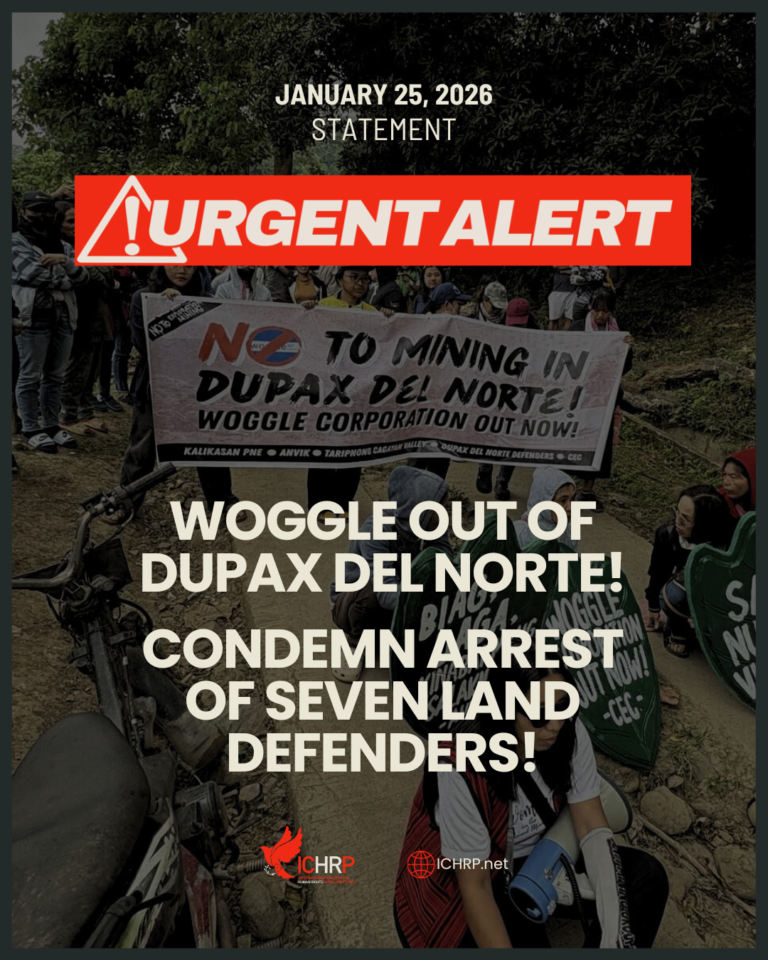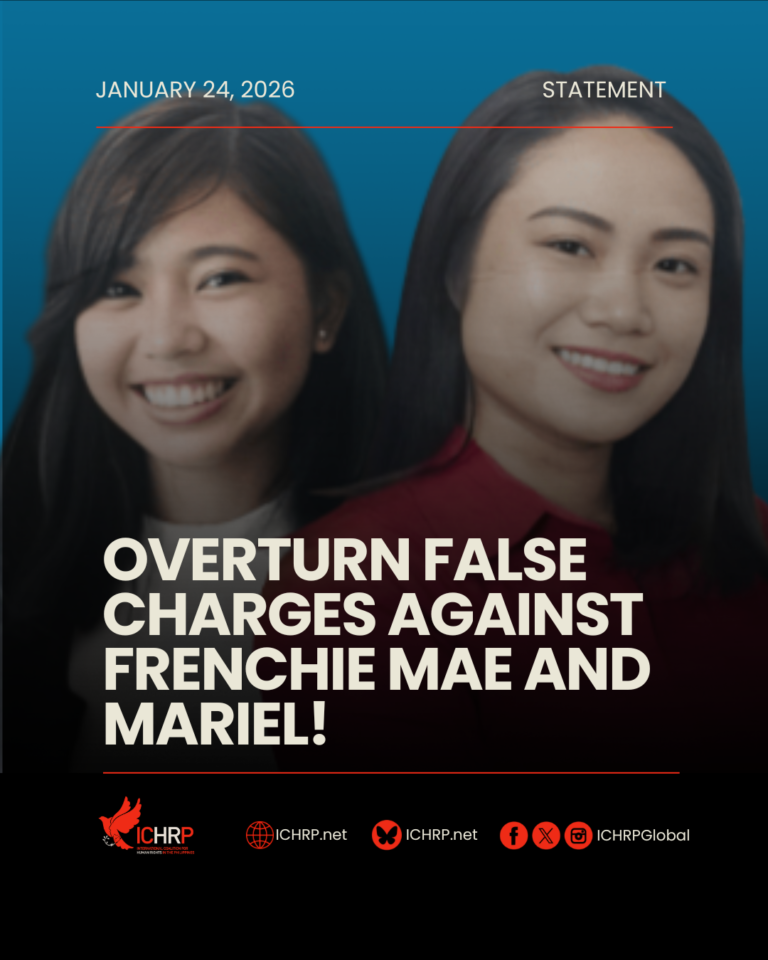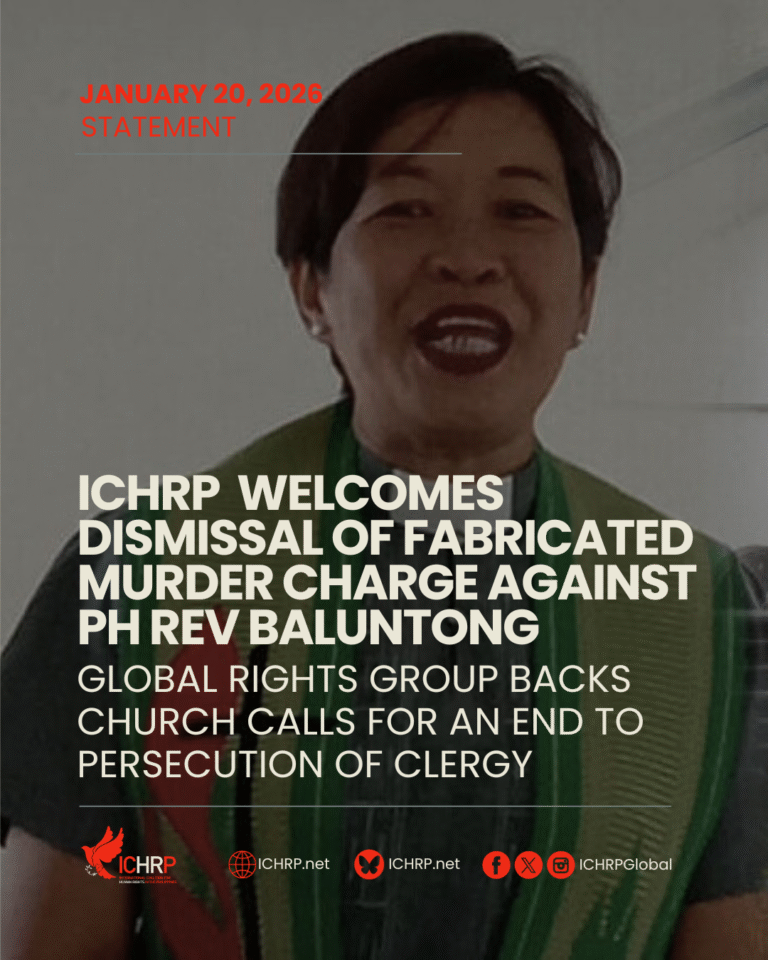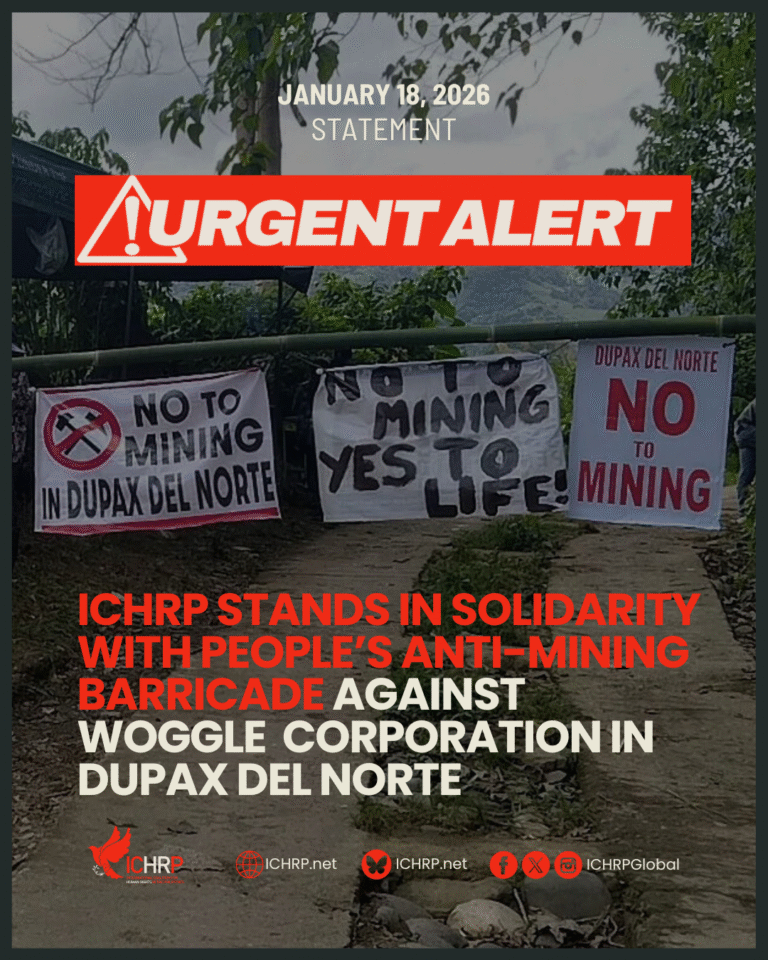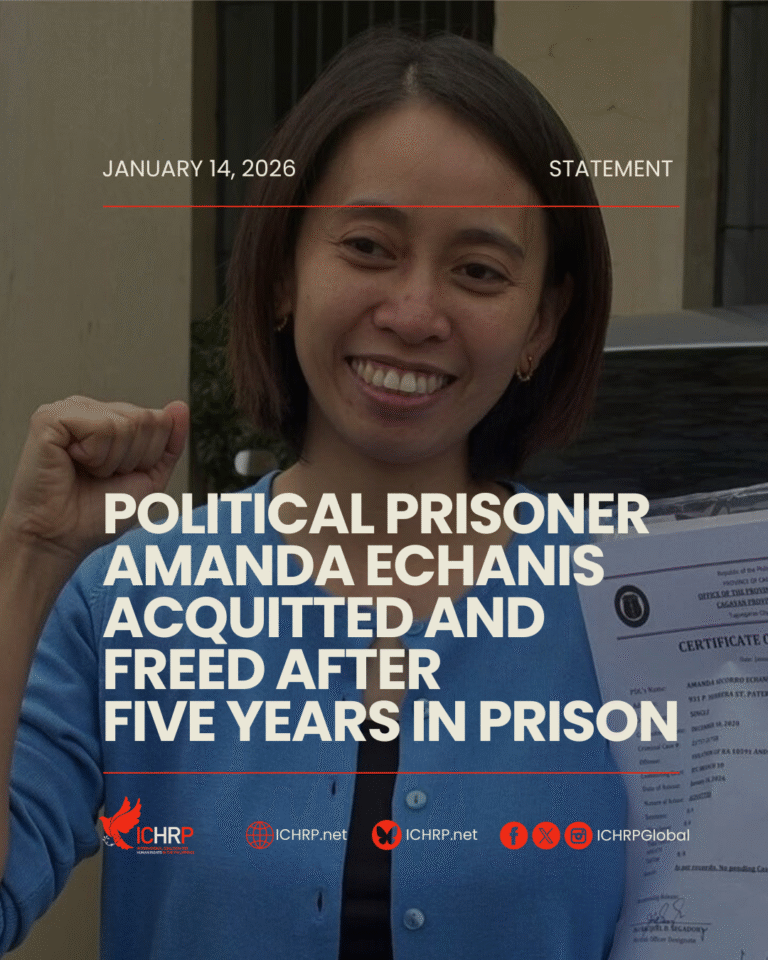Urgent Alert
January 25, 2026
The International Coalition for Human Rights in the Philippines (ICHRP) strongly condemns the violent arrest of seven residents and community members from the people’s anti-mining barricade in Dupax Del Norte, Nueva Vizcaya on January 23.
We condemn the overkill deployment and overwhelming use of force of over 300 PNP and SWAT troops who arrested the protesters and forcibly demolished the barricade to allow the entry of mining equipment of British company Woggle Corporation. State forces and Woggle goons wantonly violated the peasant community’s right to land—with the barricade standing on titled land and private property.
The seven arrested individuals are local community leader Florentino Daynos II, and six peasant Indigenous women—Krislyn Pocday, Adela Modi, Analiza Baliao, Amelia Rabino, Janet Macario, and Sonnette Nginsayan. Two of the women fainted during the altercation and were brought to the hospital before being brought to the local precinct. Most members of the peasant community are displaced Indigenous Peoples who came from different mining sites in the Cordillera region.
Woggle aggressively wants to mine gold and copper deposits which sit on Indigenous lands in Dupax Del Norte. Its exploration permits were obtained through deceptive methods, like acquiring locals’ signatures from attendance sheets for ayuda (aid) and using it as proof of their Free, Prior, Informed Consent (FPIC)—an Indigenous right. Companies need their approval before being allowed to operate on Indigenous lands.
Woggle’s intrusion to Indigenous lands in Dupax Del Norte is proof that the colonial extractivism of centuries ago still continues today. Imperialist countries continue to amass precious metals and minerals in resource-rich countries in Latin America, Africa, and Asia, often through violating domestic legal processes and using police or military force. They aggressively target Nueva Vizcaya’s gold and copper deposits in the same way that they have salivated in getting access to Venezuela’s oil, Bolivia’s lithium, and Africa’s diamonds.
This would have not been possible without the collusion of local bureaucrats, which benefit from kickbacks and bribes from foreign corporations to allow them to operate on Philippine soil. In the case of Nueva Vizcaya, politician brothers Timothy Cayton and Paolo Cayton are complicit in allowing the entry of Woggle in the locality. This is the classic playbook of bureaucrat capitalists—use their power and influence to run the government like a business.
ICHRP calls on Marcos Jr. and the local government of Dupax Del Norte to immediately release the seven arrested individuals. The international community will not stand idle and will continue to campaign to stop Woggle’s operations in Nueva Vizcaya.
Woggle out of Dupax Del Norte!
Released Arrested Land Defenders!




